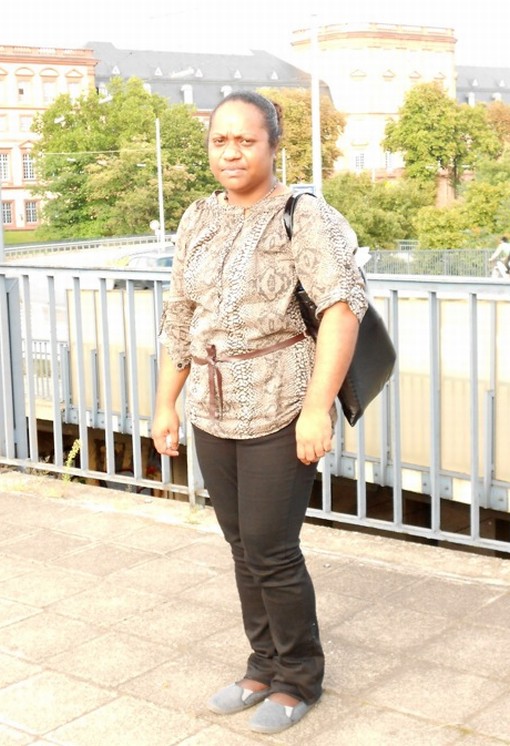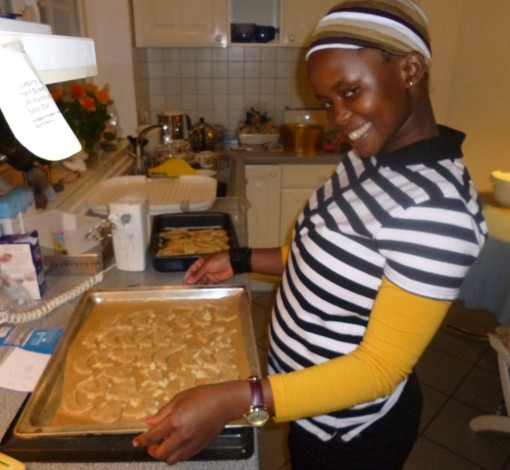For many scholarship holders, this is their first Christmas in Germany. Even if they are Christian, the Christmas holiday is celebrated much differently than in their home countries.
“In Benin, Christmas is a celebration for children,” explains Johanes Agbahey. Dressed in traditional costumes known as ‘Kaléta’, the children parade through their neighbourhoods in small groups on December 24th, singing and dancing, and collecting small presents and gifts of money. The DAAD scholarship holder, who is enrolled in the Agricultural Economics programme at the University of Hohenheim, says he used to dress in ‘Kaléta’ and go door to door with his friends. “It was really fun – and at the end of the day, we’d share the money and presents we got.”
Agbahey visited a Christmas market with his friends in Esslingen and was taken not only by the special atmosphere and lights but by costumes of a much different sort. “The people were dressed up like in the Middles Ages. I really liked that.”
Christmas c-c-c-cold
With Christmas in Africa a warm and sunny affair, the Germany holiday season, replete with snow and shivering cold, is quite an experience for those accustomed to warmer climes, such as Mary Namukose from Uganda. “It’s the first time that I’ve celebrated Christmas in wintertime,” says the DAAD scholarship holder, who came to Germany to participate in the International Studies in Aquatic Tropical Ecology (ISATEC) programme in Bremen.
Barbara Lokes from Papua New Guinea is also accustomed to warm Christmas weather. “It is so strange to stand outside on the coldest of winter nights and eat Brötchen with Wurst and drink Glühwein!” Lokes, who is studying in Stuttgart as part of the Photogrammetry and Geoinformatics postgraduate course, experienced her first “cold” Christmas not this but last year. “I really missed being away from my family during this time,” she recalls. Christmas is a very family-oriented celebration in Papua New Guinea. In her country, there are no public celebrations due to safety risks. This time around she was excited to partake in the ‘communal’ Christmas celebrations, enjoying the Christmas feeling that is everywhere. “People can go out and celebrate Christmas in public spaces without any restrictions,” says Lokes, who especially appreciates this kind of freedom and sense of safety. “I feel at home here. Wintertime and Christmas in Germany are culturally unique – and I’ve made them my own.”
Bright lights – bright markets
Mary Namukose is fascinated by the Christmas decorations that are on display everywhere and for weeks on end. “The Germans even decorate their supermarkets! I feel like every day it’s Christmas already.” Like Barbara Lokes, she is enjoys the Christmas lights and the seasonal market stalls filled with trinkets, art and sculptures. “It’s so different from Uganda,” says Namukose. For both women, there is more to the Christmas markets than shopping. “I could walk around the city till daybreak, just to enjoy the Christmas lights,” says Namukose.
Celebrating with Germans
Come the 24th of December, the scholarship holders will be far from home. Johanes Agbahey is hoping for a repeat of last year’s Christmas celebration, something he really enjoyed. “Our programme coordinator organised a Christmas present sharing party last year – and my landlord gave me a cake that is baked in Swabia during the Christmastime.” Mary Namukose is particularly impressed by how much the Germans bake during Christmas, something she noticed during his first year in Germany. “My friend’s parents invited me to bake cookies with them,” she remembers. “They also gave me an Advent calendar filled with chocolate – that was really nice!”








